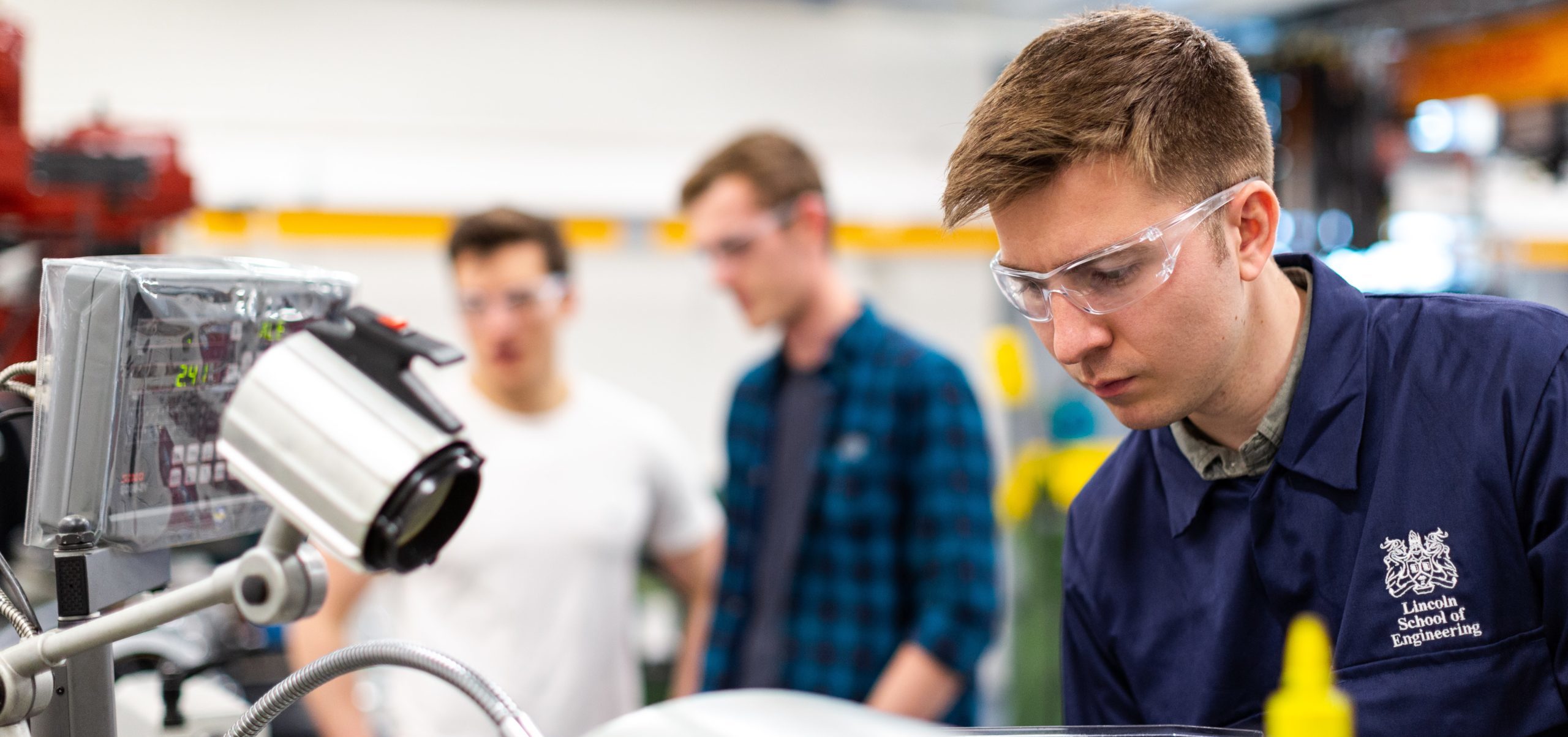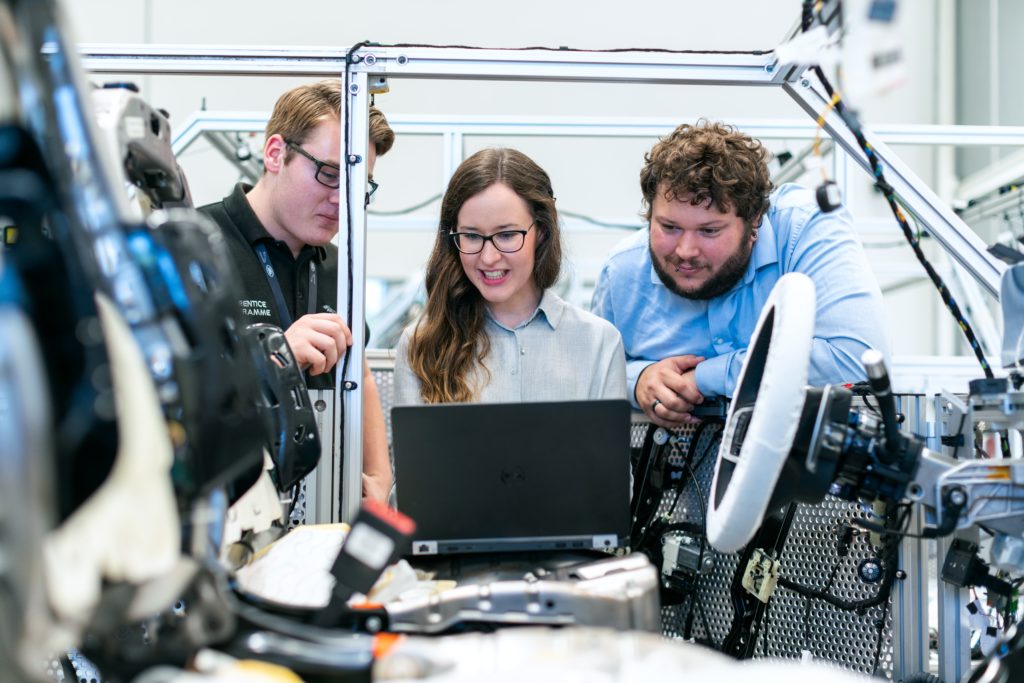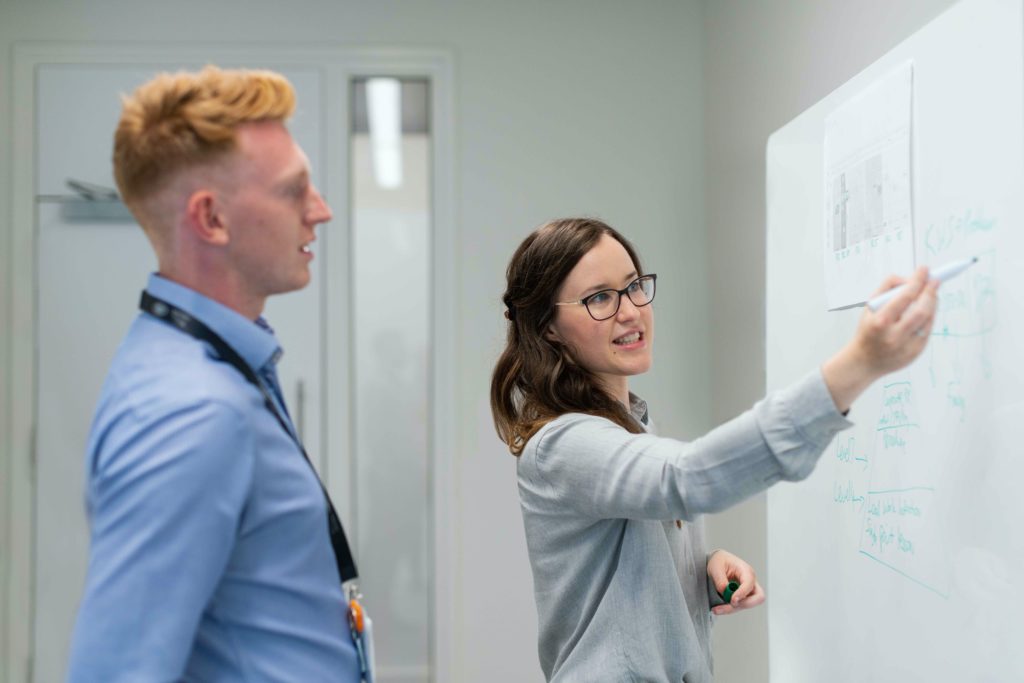To succeed in today’s competitive working world, students need more than basic qualifications—they need a range of skills to help them get their foot in the door and advance through their career ranks.
Experiential learning is one of the best ways learning institutions can build career readiness skills in their students boost employment outcomes. But what exactly are these skills, and how can experiential learning help develop them?
You’ll find all your answers and more in this article.
What Are Career Readiness Skills?
Career readiness skills describe a set of abilities and expertise to help a person fulfil their needs as a student, employee, or business owner. They’re essential for anyone hoping to take control and reach goals in their professional and personal lives.
Job readiness is key to success in today’s workforce. It can help people find a job that fits their interests, improve their understanding of the skills they need, and help them develop their strengths.
In today’s competitive job market, many companies look for candidates who offer more than basic qualifications. Developing these vital skills can make you stand out from the crowd.
Some of the most important employability skills include:
- Communication
- Critical thinking
- Creativity
- Data analytics
- Digital literacy
- Interpersonal skills
- Learning agility
- Diversity (culture and identity)
- Flexibility/adaptability in a changing environment
- Financial literacy/money management
- Future-oriented thinking
- Problem-solving
Current Career Readiness Standards
As the working world changes and evolves, so do the skills necessary for career readiness. It’s crucial to stay up-to-date with these changes to maximise a student’s chance of success in their chosen industry.
The Australian Blueprint for Career Development highlights the current career readiness standards in our country. The three main career management competencies are:
- Personal Management, which involves maintaining confidence and positive self-esteem
- Learning & Work Exploration, which includes participating in lifelong learning
- Career Building, which involves making career-enhancing choices and passing career assessments
What Is the Skills Gap and How Does Career Readiness Address It?
The ‘skills gap’ describes the difference between the skills needed to complete a job and the availability of those skills in a given talent pool.
Employers may require specific skills for a job listing, but if there aren’t enough qualified applicants to fill the role, unemployment rates can rise.
Thankfully, career readiness offers a manageable way to address the skills gap. When educators focus on instilling vital soft skills, students are more likely to meet an employer’s requirements.
7 Career Readiness Skills That Make Your Students Stand Out
The global economy is changing and employers are constantly looking for applicants with strong, well-developed, and career-relevant skills. Let’s discuss some of these skills now.
1. Critical Thinking/Problem-Solving
Critical thinking and problem-solving skills are crucial because they help prepare individuals for what the future might hold.
These skills also help new college graduates understand how to react when situations don’t go as planned, preparing them for when they need to seek new opportunities or change careers.
2. Oral/Written Communications
Communication skills are more vital than ever in today’s world. Whether you are interviewing for a job, speaking in front of a large audience, or just having a conversation with a friend, these skills need to be honed.
Oral and written communication skills are crucial because they allow us to express our emotions and ideas without the use of words. By building these soft skills, students can develop stronger collaborative relationships and move forward confidently in their working lives.
Today’s job market requires people who not only have strong verbal communication skills, but also the ability to write well and present themselves professionally.
3. Teamwork/Collaboration
Our modern workforce strives to stay connected and keep up with the working world’s ever-changing needs. To do so, it’s crucial for employees to have a variety of skills that can help them adapt and become more effective in the workforce—with teamwork and collaboration being essential.
A team with high morale, a supportive culture, and the skills necessary to work together well is more likely to thrive and deliver the best results.
4. Information Technology Skills
With the rapid advancement of technology, more and more companies are looking for people with IT skills. Applicants with cutting-edge knowledge in information technology, software engineering, and data science are all in high demand.
IT skills help in job readiness as they can prepare individuals for a degree or certificate programs they may need on the job.
Students, Gain Experience & Skills Employers Are Recruiting For Today!
Enrol for free in Practera’s government-backed live programs to build your employability skills
5. Leadership
Many people think of leadership as an innate skill, limited to those only with natural charisma and confidence—but that’s not the case. Leadership is a teachable skill like any other!
Well-fleshed-out leadership skills allow individuals to communicate, inspire teams and consistently deliver results. For example, a leader needs to know how to prioritise tasks, manage workflow, and deliver feedback effectively so employees feel supported throughout their experience in the company.
6. Professionalism/Work Ethic
Work ethic and professionalism are also crucial skills in the workplace. Let’s discuss what they mean and why they matter.
Work ethic is all about following a personal code of conduct and acting in accordance with personal values. The skill also includes being punctual, taking an interest in others, being willing to learn new skills and going above and beyond expectations.
Similarly, professionalism is all about displaying a set of values, ethics, principles, and ethical systems that govern professional practice. A professional will maintain a positive reputation and character to enable success in their future careers.
7. Career Management
Career management isn’t exactly a skill in itself, but rather a set of skills and abilities that can help employees identify career goals and achieve career development. It’s the difference between powering through day-to-day tasks and taking real action to achieve career advancement.
Some core career management skills include:
- Labour market awareness
- Leadership
- Inquisitiveness and initiative
- Resilience
- Creativity
- Career planning
What Is Experiential Learning?
Experiential learning is a way of teaching or learning that draws on firsthand experiences, interactions, and interventions. It is different from traditional educational pedagogy in that it encourages learners to participate in the process rather than passively experience the material.
David Kolb, an American psychologist and educational theorist, developed the experiential learning model in 1948. He believed knowledge arises through experience—a theory that still holds true today.
Experiential learning has become an increasingly popular method of teaching. Career readiness experts believe that experiential learning can improve students’ ability to find meaningful work and boost their competitiveness in the talent pool.
Different types of Experiential Learning
Experiential learning is a type of education that uses real-world experience as the main medium to teach students. It can take many forms, from hands-on learning in fields like engineering, to more traditional studies such as academic analysis or art classes.
Work-integrated learning is one branch of experiential learning—it involves students learning real-world skills in an office, studio, workshop, or another working environment. Project-based learning, on the other hand, is all about involving students in hands-on, long-term projects.
Here are some examples of how institutions can deliver experiential learning:
- Working with a mentor in a non-profit organisation,
- Teaching an English class while living abroad,
- Participating in a laboratory experiment,
- Joining an internship program,
- Working at a restaurant over the holidays.
How can Experiential Learning help develop students’ career readiness skills?
Experiential learning is an approach to education that involves students engaging in activities and gaining real-world experience in a particular field. This can help students develop the professional skills needed to succeed in their careers.
There are many ways to implement experiential learning in your classrooms. You could have students work as interns at different real-life companies, or you could have them volunteer at local community organisations. In this way, students can develop skills highly relevant to their chosen industries, along with general career readiness abilities.
For example, let’s say a student wants to start a fundraiser to support their local soccer club. They’ve put together a small team to help them bake goods and build a stall to sell their products. They’ve also made flyers to place around the university, promoting their fundraiser.
Through this project, the student will gain several critical skills for career readiness, including leadership, planning, collaboration, communication, and marketing skills.
Getting your students involved with experiential learning
Getting your students involved with experiential learning is easy— especially with a specially-designed platform. Practera’s learning management platform makes delivering learning experiences easy, including internships, work placements, projects, simulations, and more.
Delivering experiential learning can be as simple as a class project or as complex as a technology-driven work simulation. No matter how you choose to enrich your students, Practera’s platform is the way to go.
Using a learning management platform to help students develop skills
Practera’s innovative platform offers an all-in-one solution for delivering and managing hands-on learning experiences. It’s the ideal way to attract and retain students, enhance employability, grow industry engagement, and reduce delivery costs in further education.
The platform’s useful features include:
- A template library to help you get started with delivering experiential learning.
- Customisation to help you author any kind of learning.
- 360-degree feedback from peers, educators, and industry.
- A comprehensive analytics dashboard displaying clear, actionable results.
- Chat-based collaboration tools to help students, educators, and employers stay in touch.
Start delivering innovative learning experiences today
Experiential learning is one of the best ways to prepare students for the working world. By delivering varied and hands-on learning experiences, universities can instil vital skills and values in their students, including leadership, collaboration, teamwork, future-oriented thinking, digital literacy, and much more.
The simplest and easiest way to deliver these modern learning experiences is through a platform like Practera’s. Connect with our team to adapt one of our authentic Student Industry Project themes to launch your experiential and project-based learning program. Our Project-based learning managed service can ensure your learners connect with global organisations and gain real-world experience. To find out more about how we can help and what our platform offers, download our white paper here—or contact us online to request a FREE platform demo.




